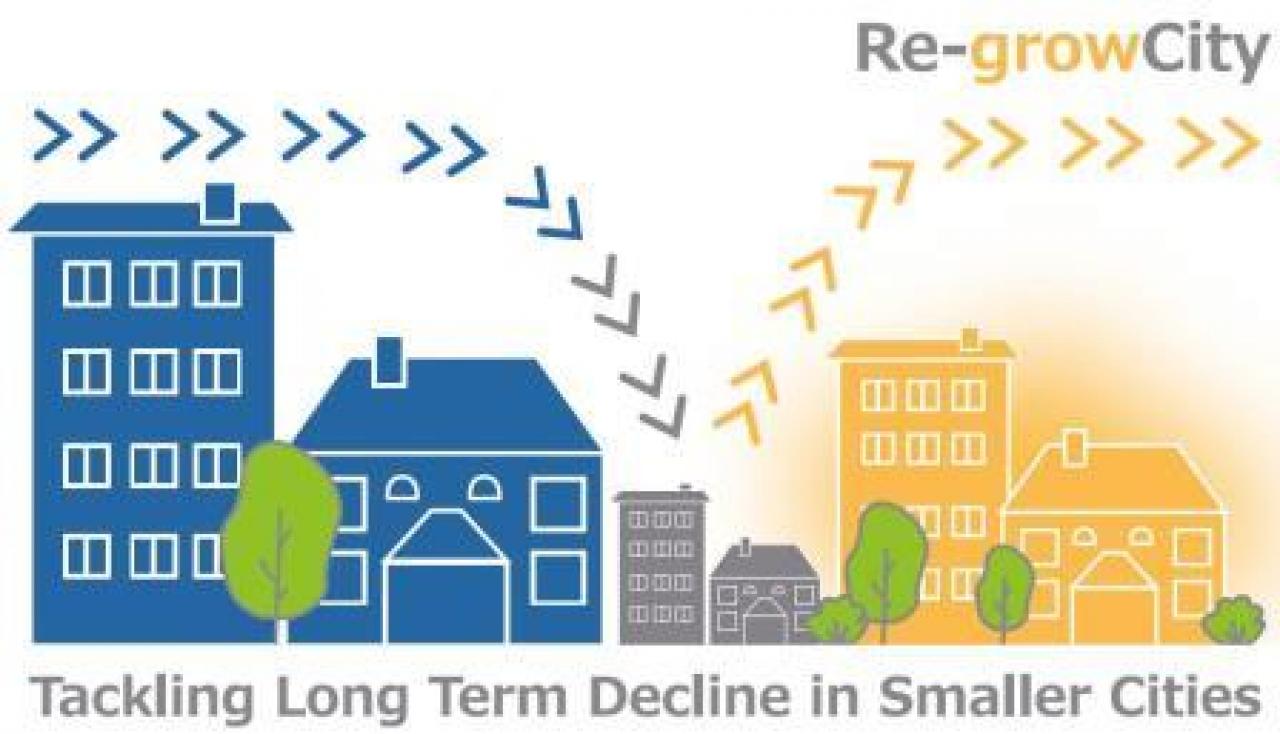
Pop-up shop in a nutshell
Pop-up shops utilise under-used or vacant premises for short term commercial or social initiatives. Short term and low cost leases reduce the risks for entrepreneurs to experiment with new service concepts or test the market for unusual goods. At the same time the event character of a pop up shop catches the interest of the public and generates good PR. If successful the short term nature of the pop-up shop can evolve into more permanent arrangements.
[[{"fid":"29850","view_mode":"default","fields":{"format":"default","field_file_image_alt_text[und][0][value]":false,"field_file_image_title_text[und][0][value]":false,"field_author[und][0][value]":""},"link_text":null,"type":"media","field_deltas":{"2":{"format":"default","field_file_image_alt_text[und][0][value]":false,"field_file_image_title_text[und][0][value]":false,"field_author[und][0][value]":""}},"attributes":{"height":155,"width":287,"class":"media-element file-default","data-delta":"2"}}]]
What problems does the pop-up shop address
Economic decline and outmigration of economically active populations result in an over-supply of retail premises. Town centres are especially affected by this because commercial rents tend to higher than elsewhere and the owners of retail property often do not live locally, hence have limited interest in supporting the local economy. In many cases it is also difficult to trace the identity of owners which limits opportunity to enter into negotiations about the rent. This makes retailers move to cheaper locations to preserve their business or close the shop altogether. The result is a growing number of empty retail premises in the one place where inhabitants would expect to find them. Every shop closure has knock-on effects on neighbouring shops as well as catering and leisure business because the attractiveness of the retail offer declines, reduces footfall and which in turn affects the profitability of remaining businesses. Making vacant retail premises accessible to start-up entrepreneurs, cultural projects or artisan caterers helps retain and perhaps enhance the attractiveness of the town centre as place to shop, relax and socialise. A further benefit is that the business community is enriched by new ideas and encouraged to join forces in the fight against ongoing decline. However, the municipality must be pro-active in identifying owners willing to make their premises available for pop-up purposes and create a legal framework which facilitates the pop-up business model. Although some traders may view this model with suspicion the owners of vacant shops welcomed the pop-up initiative. This demonstrated a willingness by the municipality to take practical actions which provided tangible support to shop owners who felt more comfortable to enter into rental agreements with the municipality than with short-term tenants.
Key element of practice: The municipality needs to be pro-active to create pop-up opportunities for local entrepreneurs.
How it started
As population declined the number of empty commercial premises grew. Although the municipality tried to occupy some of these with the aim of providing services where citizens are, budget restrictions and the scale of vacancy could not be tackled in this way. The first attempt to stop the growth of vacant commercial premises started in 2011 when the municipality opened an office in the town centre designed to attract new business into the empty premises. This initiative was intended to capitalize on the success of connecting Altena castle to the town centre with an elevator and was part of an economic development initiative funded with €200,000 aimed at creating an ‘arts village’ in the town centre. It was anticipated that local arts and crafts dealers would utilize vacant shops at preferential rental rates. The municipality identified the owners of vacant premises and agreed that preferential rental agreements would be negotiated should interested entrepreneurs come forward. However, despite much publicity targeting business communities in the region and an opening event there was insufficient interest from local entrepreneurs. Officials involved in this first phase believe that fear of failure was a key barrier. In a small town everyone would know about a business idea not succeeding and with pop-ups being an entirely untested concept there was much scepticism from the owners of the premises as well. By the time the development fund had to be spent in 2012 most of the resource had been used on promoting the idea of the pop-up without actually achieving a single pop-up initiative.
What’s involved
In 2013 another attempt was made to utilise the growing number of vacant shops. This time the municipality engaged the business community and owners of vacant premises in a dialogue about the pop-up concept before offering a solution. This resulted in a model whereby the owner would make their premises available for a limited period to the municipality which would take responsibility for ensuring that the owner would not incur any costs from their participation in the scheme. In case of a pop-up becoming permanent the municipality would make to connection between retailer and property owner and leave them to negotiate a rental agreement. They arrived at formula whereby the shop owner would agree a rent with the municipality for a pop-up agreement lasting up to 12 weeks. Rent levels ranged from getting the premises free of charge to paying rent at close to commercial levels charged in town. The municipality then averaged the cost per square metre so that every pop-up renter would pay €4 to the municipality. This would cover heating, water and electricity. The entrepreneur would register their business in the normal way to make the enterprise complied with German law. This would include payment of business taxes if turnover exceeded a certain amount as well as insurance. The entrepreneur was also eligible for a grant of up to €800 to decorate the shop or buy shelves or tables, but only a few took up this opportunity. After the maximum time of 3 months for the pop-up was reached the entrepreneur would either vacate the premises or remain having reached a rental agreement with the owners. There were no additional costs involved for shop owners, they would simply continue to pay their normal running costs as though the premises were empty.
The funding for the fitting out of the shops and marketing was funded through a €25,000 prize Altena had won in a regional competition for innovate concepts to regenerate town centres. Apart from managing the liaison between owners and entrepreneurs there was no cost involved for the municipality. The municipality used three members of staff, one economic development and two marketing officers, and one consultant to drive the pop-up initiative forward. Today the main contact person for pop-up is a member of staff in the marketing department. The opportunity to establish a pop-up is now part of the economic development support offered by the municipality, it has been ‘mainstreamed’.
Between 2014 and 2015 a total of 18 pop-ups were created, of which 5 are still trading and a new pop-up was recently added. These included a small grocery shop with regional products, two draperies with sewing classes, a shop with branded giftware, a ceramic shop, a small shop with wood products, a café/bar by the elevator and a seasonal café on the river front. Nowadays, in 2018, the two draperies, the gift shop and the cafés are still trading as profitable commercial enterprises. In addition a large chemist’s opened in 2017 through the pop-up mechanism and uses the pop-up logo for its branding as a local initiative. Pop-ups that did not continue included a church run shop offering gifts, refreshments and place for informal meetings in the run up to Christmas and a gallery displaying paintings by artists suffering from dementia.
Key element of practice: the municipality needs to be prepared to incur some costs and carry some risks to make the pop-up shop concept work.
What is not involved
Some municipalities allow the short term selling of factory stock in ‘pop-up outlets’ or permit ‘pop-up hostels’ to provide temporary accommodation for visitors. These practices were not part of Altena’s approach.
Summary
Pop-up shops provide an effective way to populate the town centre with new enterprises for a short period of time. The goal is to support entrepreneurs in testing the viability of their business in that particular location and then facilitate their transition into permanent rental agreement with the owners. The municipality carries some costs and also risks during this period and needs to be prepared to overcome resistance from existing shops and also the owners of empty premises. A pilot project is advisable to test the concept on a small scale before trying to make it available more widely. The “test and try” and provisional character of a pop-up encourages people to become an entrepreneur and start their own business for the first time. The supportive community of a group of entrepreneurs starting at the same time can be important as well. The short-term promotion of pop ups minimizes the perceived risk of failing when one has to close the shop down again. The credo is to minimize risks and maximise support.
Key element of practice: Municipalities need to be prepared to try different approaches before finding a formula that works in local circumstances.

